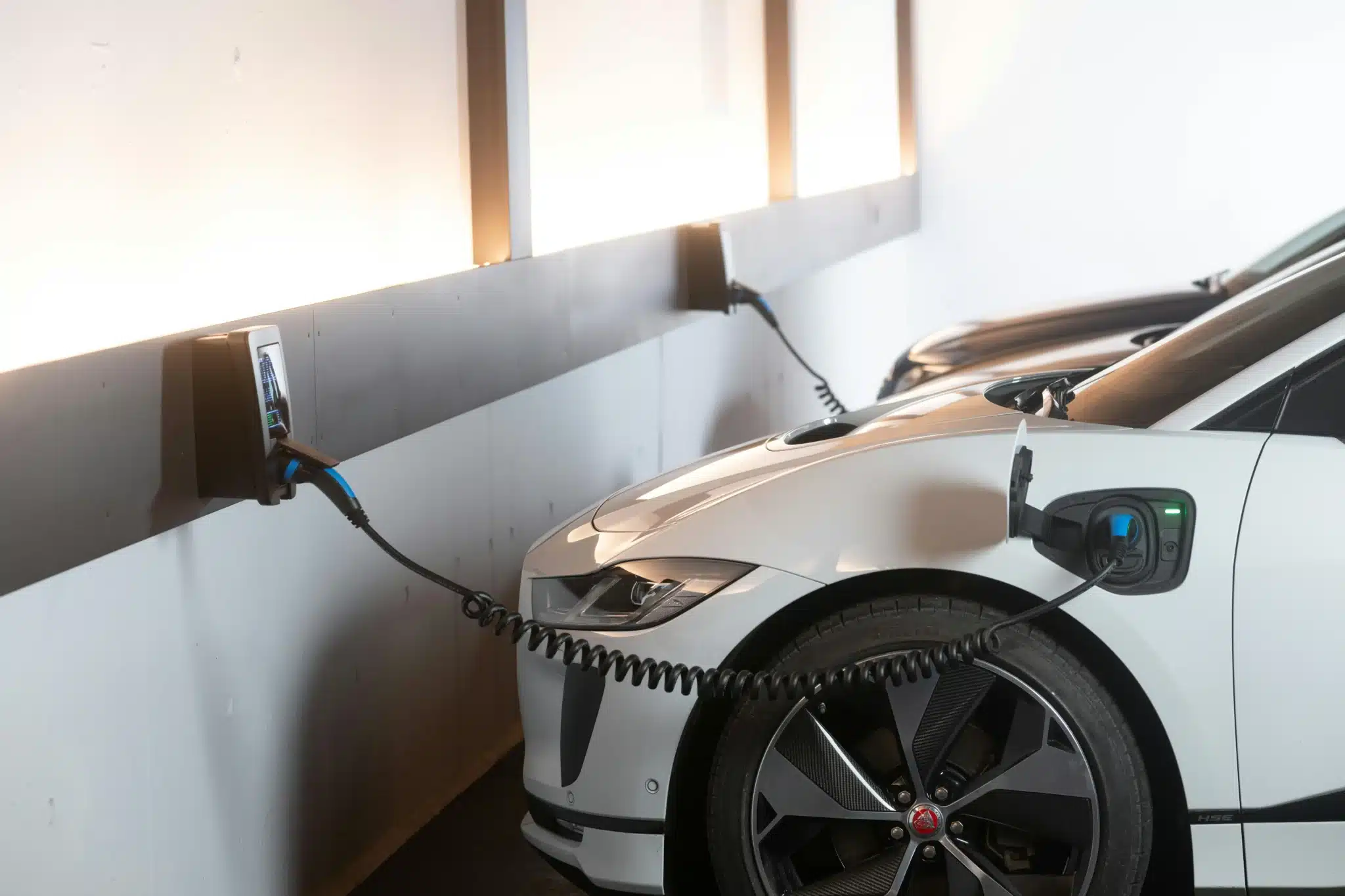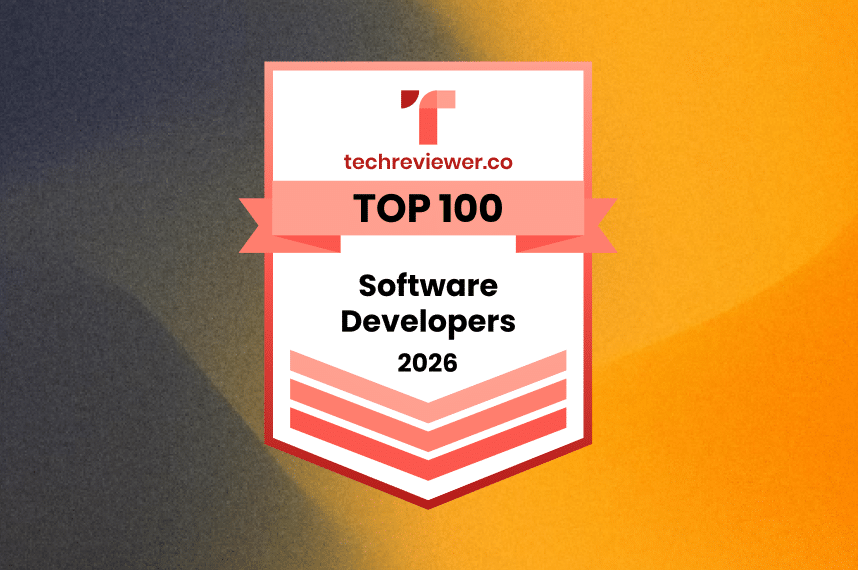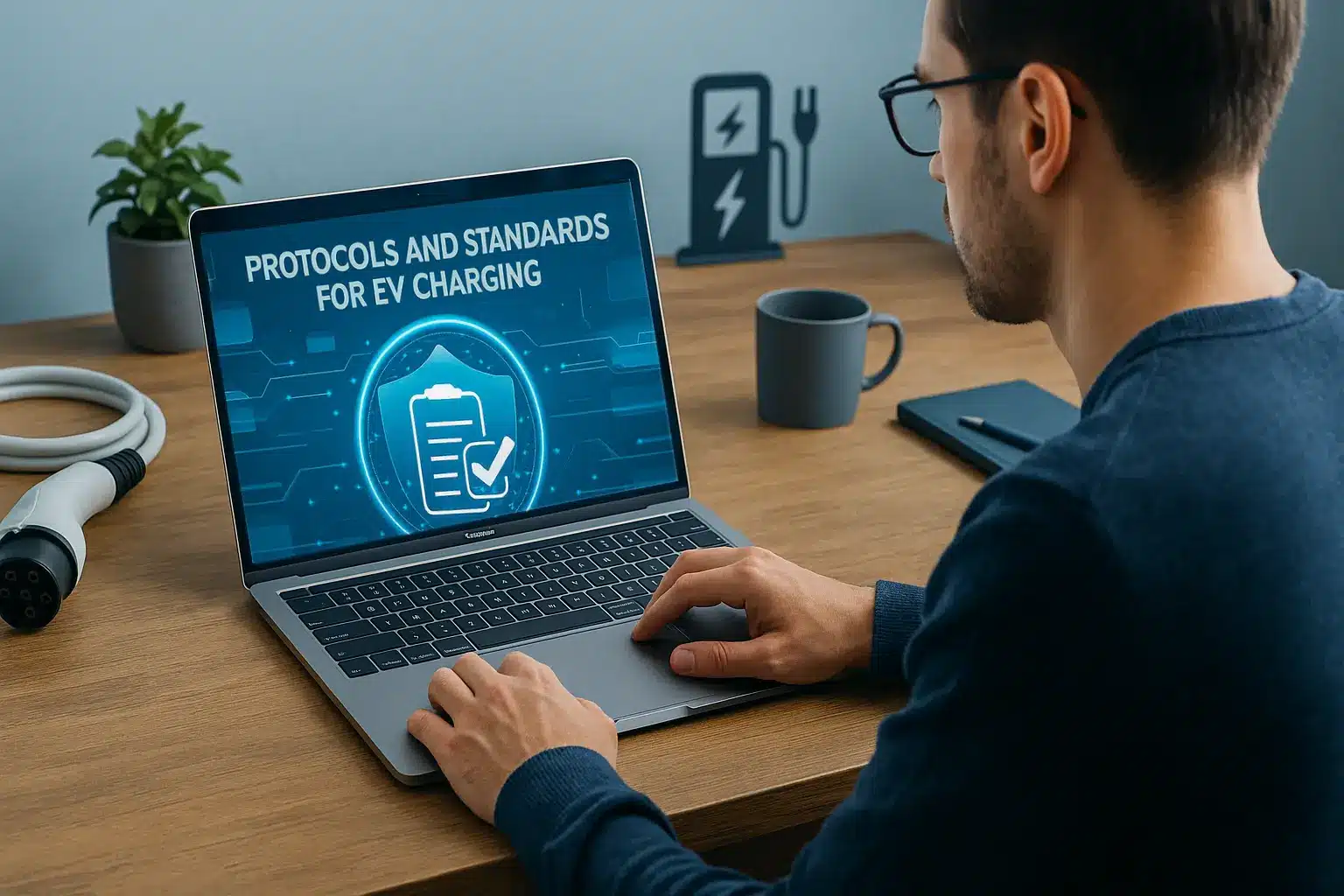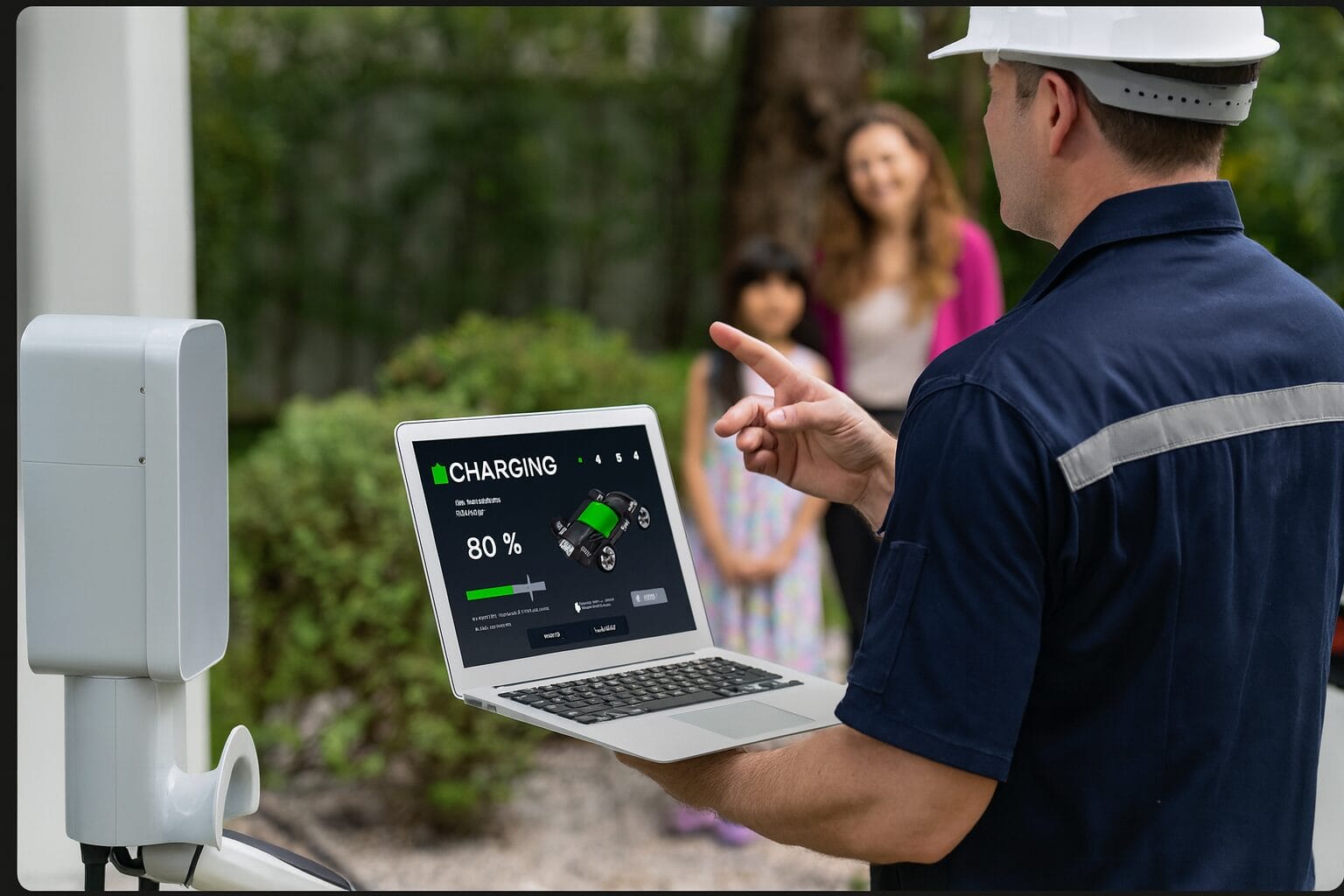Smart charging alone can save up to 25% of network reinforcement and 20-50% of energy costs. In this post, you’ll explore smart charging platform features for energy infrastructure, transportation, and other businesses. You’ll also take a look at a comparison of custom vs off-the-shelf smart charging solutions, and will find out which suits you best. Real-world scenarios provided at the end of the post will complete the insight.
Why smart charging matters for businesses
For starters, let’s define the concept of smart charge management:
Smart charge management is intelligent optimization of electric vehicle (EV) charging that balances energy demand, grid capacity, and user schedules while taking into account electricity prices and user mobility needs.
At the same time, the difference between smart charging and normal charging is that normal charging delivers electricity to an EV as soon as it’s plugged in. In its turn, smart charging uses data, automation, and pricing signals to control when and how charging happens.
So, why exactly does smart charging matter? The statement is simple: the cost of energy consumption for businesses or their respective clients can reach millions of dollars, and, therefore, any method to cut expenses must be utilized.
Here are the ways in which smart charging proves its usefulness:
- Energy cost optimization and load balancing: Among other usages, smart electric vehicle (EV) charging systems reduce peak demand costs and optimize energy use.
- Fleet uptime and operational reliability: Due to smart management platforms, electric vehicles, as well as infrastructure, can operate more consistently on multiple levels. It also reduces downtime risks.
- Scalability to match future EV adoption: EV charging management platforms offer to scale monitoring and analytics seamlessly. This benefits long-term growth and sustainability goals.
Features of EV charging software and platforms are provided in the next blog section. They should make the picture of the smart EV charging station software’s usefulness complete.
As a bonus, here’s a list of businesses that, the Intelliarts team believes, can benefit the most from electric vehicle smart charging solutions:
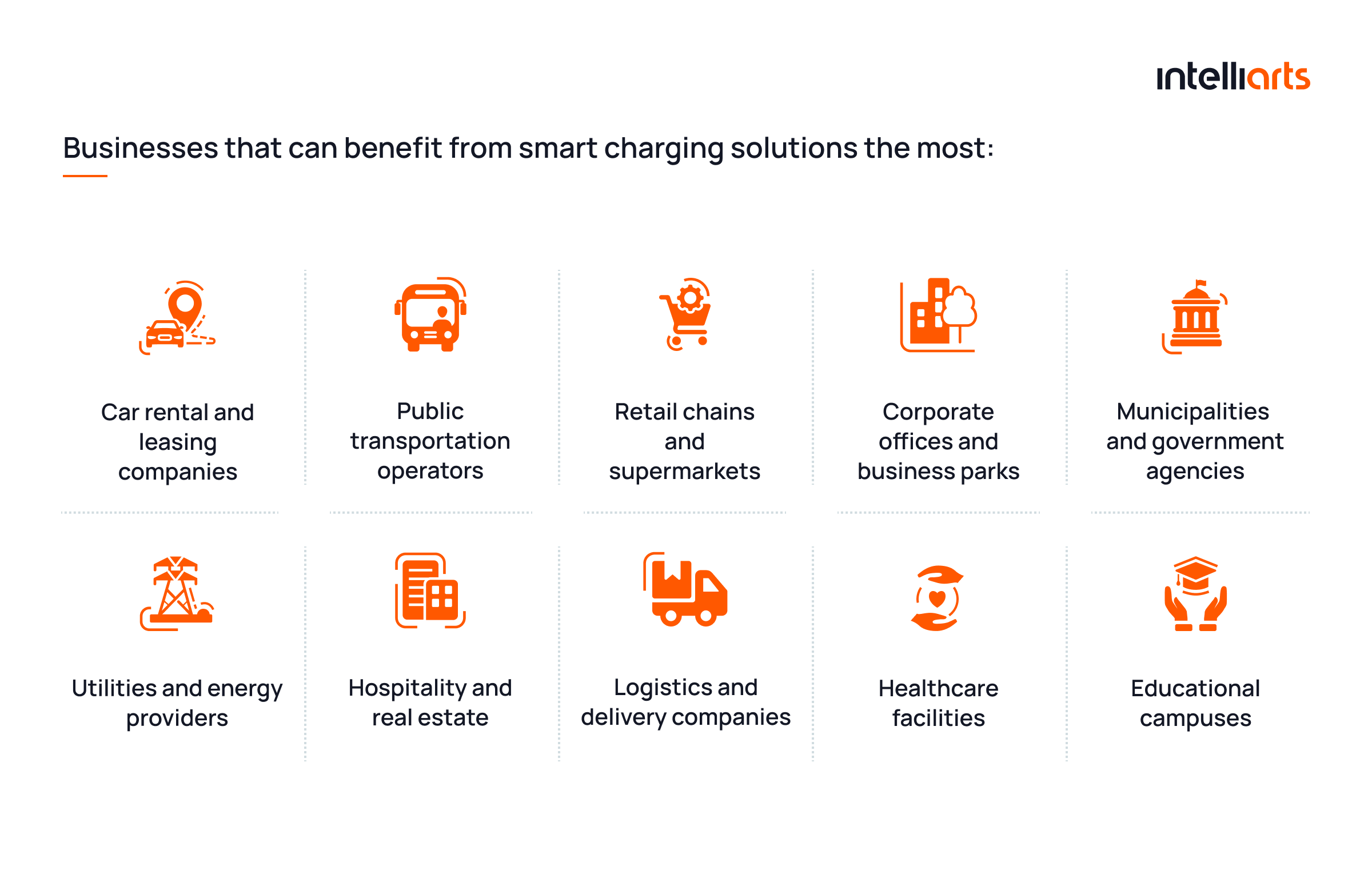
Key features that businesses prioritize in smart charging platforms
With this list, the Intelliarts team aims to provide you with a better understanding of how the technology works, as well as to indicate ways in which you can use electric vehicle smart charging in business:
The time is right for electric cars – in fact the time is critical. — Carlos Ghosn, a former Chief Executive Officer (CEO) of Michelin North America
#1 Dynamic load management
What it is: Real-time power distribution that balances energy across chargers and facilities, avoiding grid overloads and unnecessary infrastructure upgrades.
How it is used: With smart charging solutions, businesses cut peak demand costs, stabilize operations, and ensure both EVs and core infrastructure run without disruption.
Example: An office park balances power across 20 chargers, preventing blackouts and avoiding costly transformer or infrastructure upgrades.
#2 Energy scheduling & peak shaving
What it is: Automated charging aligned with off-peak tariffs, reducing expensive grid consumption during high-demand hours.
How it is used: Smart EV charging schedules energy use efficiently, lowering bills and maintaining full fleet readiness without stressing business facilities.
Example: A delivery fleet charges overnight at off-peak rates, lowering electricity bills and ensuring vehicles are ready by morning.
#3 Integration with renewable energy sources
What it is: Platforms connect with solar, wind, or storage to maximize clean energy usage and reduce grid reliance.
How it is used: By linking smart EV charging stations with renewables, businesses cut emissions, reach ESG targets, and boost resilience.
Example: A supermarket powers EV chargers with rooftop solar, cutting grid reliance and supporting sustainability goals.
Examine IoT in EV charging solutions from our blog post.
#4 Fleet & asset management tools
What it is: Dashboards track charging, usage patterns, and predictive maintenance for vehicles and energy assets.
How it is used: An EV smart charge solution keeps fleets operational, lowers maintenance costs, and improves energy efficiency across transport and facilities.
Example: A logistics firm predicts battery replacements early, reducing downtime and lowering fleet maintenance costs.
#5 Access control & user management
What it is: Role-based access via RFID, apps, or backend systems to secure and manage the use of smart electric vehicle charging systems.
How it is used: A smart EV charging station ensures only authorized users charge, supports pricing models, and prevents misuse of the infrastructure.
Example: Employees charge with RFID cards, ensuring only authorized staff use stations and supporting flexible pricing.
#6 Data analytics & reporting
What it is: EV charging data analytics tools collect and analyze usage, cost, and performance data for informed energy decisions.
How it is used: With smart charging of electric vehicles, businesses optimize expenses, monitor ESG metrics, and prove sustainability compliance.
Example: A campus tracks CO₂ savings and expenses, optimizing charging while proving ESG compliance.
Here at Intelliarts, we have extensive experience developing and integrating custom analytics and reporting solutions across domains on demand. Don’t hesitate to explore our portfolio to discover more.
#7 Scalability & interoperability
What it is: Ability to expand charging points and integrate with diverse hardware, IT, and energy systems.
How it is used: An electric vehicle charging management system future-proofs investments, ensuring growth in EV adoption and energy infrastructure without costly replacements.
Example: A city grows from 10 to 100 chargers, integrating multi-vendor hardware on one platform without disruptions.
Custom-built vs off-the-shelf platform smart charging solutions
Let’s quickly compare custom-tailored solutions that have smart charging platform features with smart charging platforms available on the market:
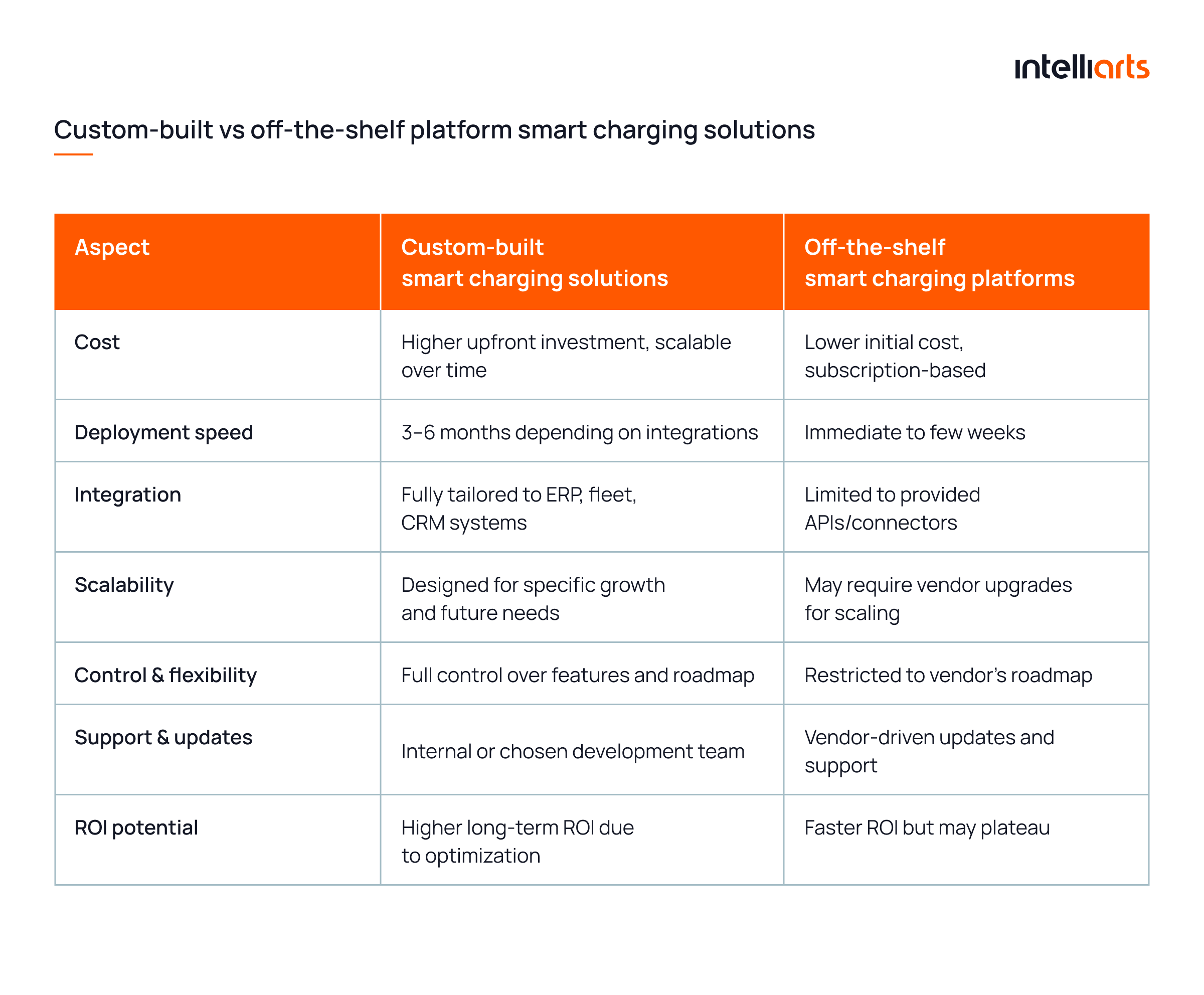
From Intelliarts’ experience, an off-the-shelf platform, despite having a seemingly better price, may not be easily integrated with your software and working processes. They also tend to offer unnecessary features, thus increasing the load on employees, and lack essential options. However, off-the-shelf platforms still may prove themselves suitable. Here are our tips to help you make the best choice:
When to consider custom-built development:
- You need deep integration with existing ERP, fleet management, or renewable systems.
- Scalability is critical, with plans to expand charging infrastructure rapidly.
- Unique features or tailored analytics are required for competitive differentiation.
- Long-term ROI and flexibility matter more than initial launch speed.
When to consider off-the-shelf solutions:
- You want a faster time-to-market with lower upfront costs.
- Custom integrations are limited, and vendor APIs meet current requirements.
- Budget constraints favor predictable licensing and subscription models.
Real-world impact of smart charging solutions: Top 3 success stories by Intelliarts
#1 EV charging management software platform for EVIQ
Challenge: EVIQ needed a custom EV charging management platform with smart charging platform features to scale its Saudi network. The solution had to support monitoring, lifecycle management, and local payment compliance.
Solution: Intelliarts built an EV charging management software with AWS serverless architecture, local payment, and ZATCA e-invoicing integration, plus a multilingual mobile app.
Results: The key components of the platform were delivered in record time. It enabled efficient station monitoring, streamlined charger onboarding, ensured compliance, and provided a seamless driver experience — supporting EVIQ’s rapid market expansion.
#2 Smart power management system development
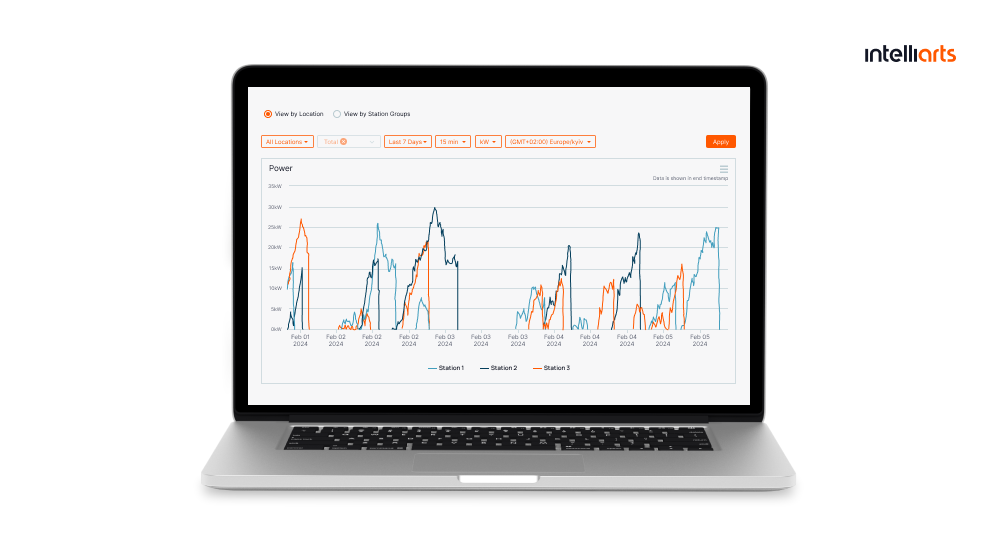
Challenge: The EV provider needed smart power management system to control loads and costs. Site hosts lacked tools and visibility at peak hours.
Solution: Intelliarts built a flexible energy management system with scheduling, analytics, APIs, and cost reports. It enforced off-peak charging and UK smart charging compliance.
Results: The platform balanced loads and lowered electricity bills. It extended infrastructure life and improved charging reliability.
EV adoption rates are rising nationally, but we’re seeing considerable differences in readiness levels among utilities. — Doug Black, a lead at Lawrence Berkeley National Lab
#3 Creating next-gen EV fleet management software
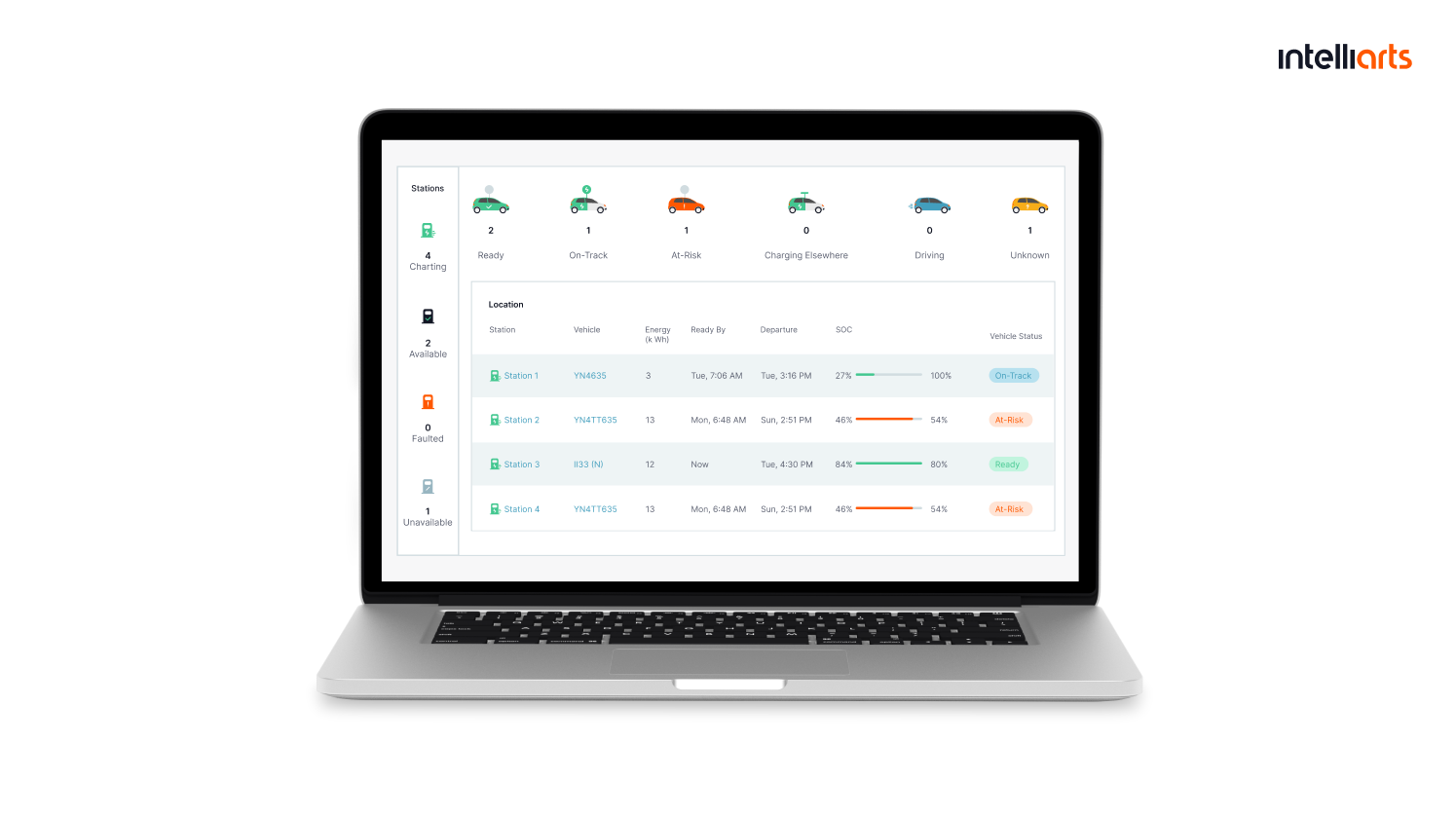
Challenge: The EV provider wanted to expand into fleet management. They needed software to track vehicles, optimize charging, and cut operating costs.
Solution: Intelliarts built EV fleet management software with telematics, energy management, analytics, and at-home charging compensation.
Results: The platform improved efficiency, reduced downtime, lowered energy costs, and gave fleet operators flexible depot, on-route, and at-home charging control.
Final take
Smart charging has become essential for cost savings and resilience. By adopting a solution with smart charging platform features early, businesses secure faster ROI and long-term infrastructure efficiency.
Here at Intelliarts, we are proud to have more than 25 years of dev experience, over 80 large projects under our belt, and a 90% customer return rate. We are ready, willing, and able to handle your EV smart charging project.
FAQ
How much does a smart charging platform for business typically cost?
Smart charging solutions for businesses usually cost from $20,000 to $150,000, depending on scale, number of chargers, and software customization required.
Can I integrate a smart charging platform with my current ERP or fleet management system?
Yes, smart EV charging platforms can integrate with ERP or fleet management systems through APIs, enabling seamless data flow and operational efficiency.
How fast can a custom smart charging platform be deployed?
A tailored EV smart charge solution can be deployed within 6–8 months, depending on complexity, integrations, and existing infrastructure readiness.






